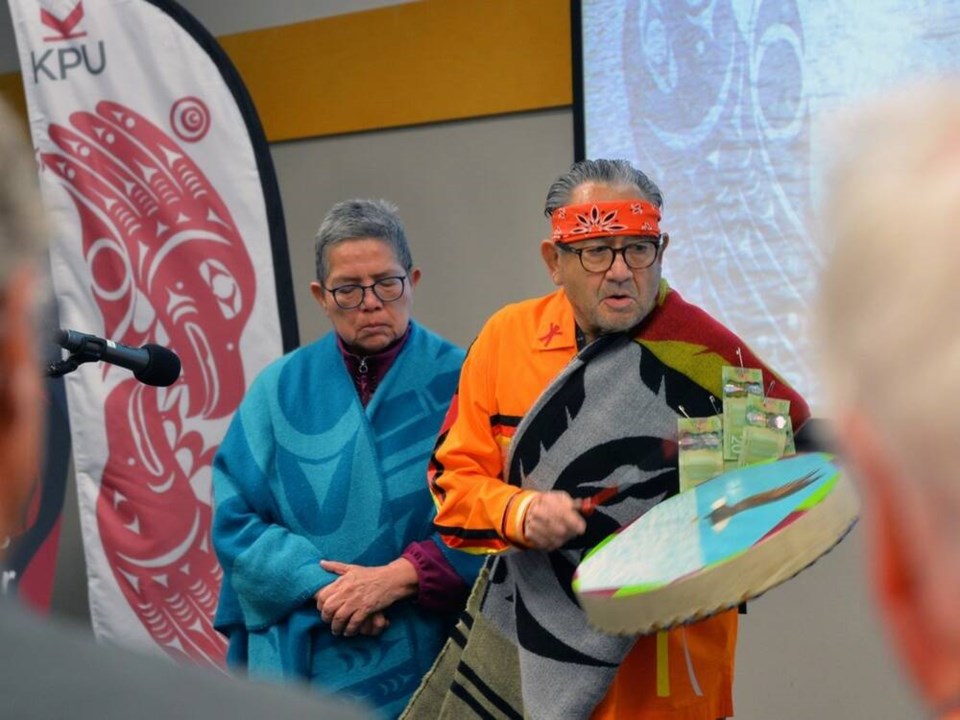Kwantlen Polytechnic University will be among the first post-secondary schools in Canada to offer Indigenous students free tuition in the fall, an initiative that is more common in the United States.
The university will waive tuition for new and current students who are members of the Kwantlen, Katzie, Semiahmoo, Musqueam, Tsawwassen, Qayqayt, and Kwikwetlem First Nations, president Alan Davis said in a news release earlier this week, calling education “fundamental to reconciliation.”
The announcement comes after the University of Waterloo in Ontario said it will waive tuition for students who are members of two local bands beginning this fall, making it the first university in Canada to do so. Some post-secondary schools in the U.S. already give free tuition to some Indigenous students, including the University of California, University of Arizona, and Oregon State.
KPU chancellor Kwuntiltunaat, also known as Kim Baird, said post-secondary schools have a critical role to play in how Indigenous people and Canadians move forward.
“Closing the socioeconomic gap will be a big part of reconciliation in this country,” she said Wednesday. “This is especially significant when we think about the mission of residential schools to remove children from their family and to destroy their Indigenous identity.”
Kwuntiltunaat said the seven First Nations were selected because the university is on their traditional and ancestral lands. The tuition announcement coincided with the release of a framework called the xéʔelɬ KPU Pathway to Systemic Transformation, which seeks to address and reduce what it considers to be ongoing systemic colonialism, oppression, and racism.
Kwuntiltunaat said she would like to see every Indigenous person in B.C. have the opportunity to access post-secondary school.
“The local seven First Nation communities will work with [KPU] Indigenous Services to verify students who self-identify from their communities. We will honour their verification process.”
Postmedia reached out to several other B.C. universities to ask about financial support for Indigenous students and whether free tuition is being considered as part of reconciliation efforts.
In a statement, the University of B.C.’s associate registrar Jennifer Chin said UBC aims to be the “most accessible large research university globally for Indigenous students, faculty, and staff.”
Financial support for Indigenous students, including scholarships and bursaries, totalled $6.6 million last year. About 55 per cent of the 2,260 Indigenous students studying at UBC in 2022-23 received some form of financial support from the university, she said.
In a statement, Simon Fraser University said it is working to reduce financial barriers and improve access to education for Indigenous students, including work to “establish an Indigenous identities and welcoming practice.”
In 2021, several SFU faculty and staff signed letters calling for free tuition for Indigenous students, according to an article in the campus newspaper, The Peak. The three letters were signed by a total of 275 people.
The University of the Fraser Valley provides some tuition-free courses in its upgrading and university preparation calendar. It also participates with Douglas College and Langara College in the Indigenous global learning program, which gives Indigenous students a chance to experience international education abroad with most tuition fees and travel costs waived.
Tuition waivers are already in use at B.C. post-secondary schools for students who were formerly in provincial care.
Vancouver Island University in Nanaimo was the first school in B.C. to offer free tuition for former children in care in 2013, with the provincial government later following suit. In August, the government will expand the program to enhance eligibility.
According to the VIU website, about 65 per cent of children and youth in care are Indigenous. More than 200 students who have spent time in care have enrolled at VIU since the program began.
VIU also allows any Indigenous peoples whose ancestral lands are within Canada to be considered domestic students rather than international students, with the corresponding difference in tuition fees.
Some Indigenous students are eligible to receive federal support from their band to pay for their post-secondary education, including First Nations communities, Métis Associations, or community organizations such as the B.C. Association of Aboriginal Friendship Centres. But funding differs by band and may be limited.



